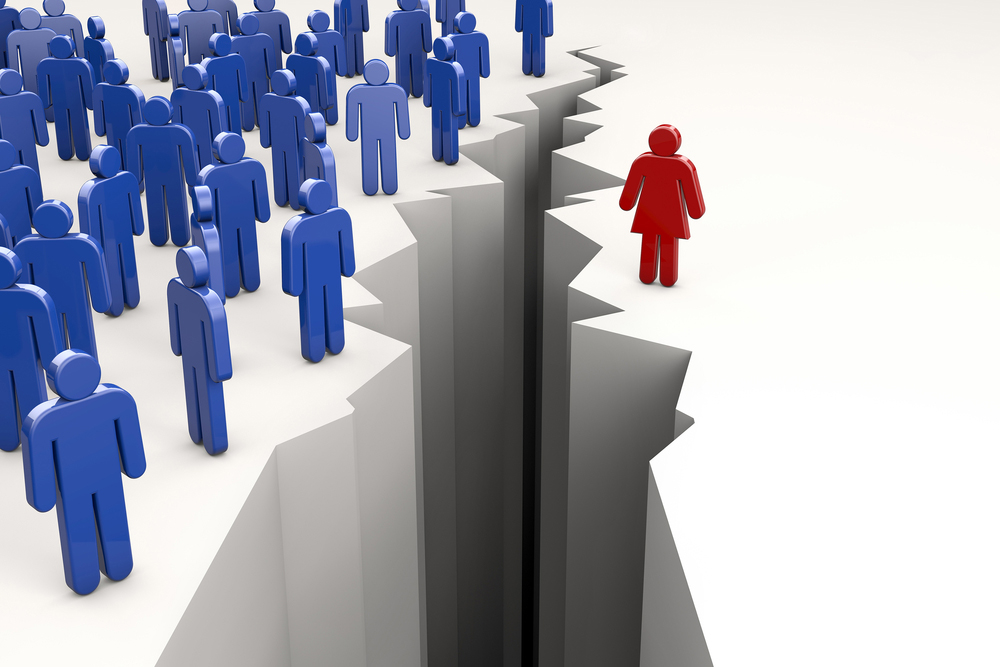"The point is to raise awareness about the topic," says Ronit Piso, director of Economic Empowerment for Women in Israel, the organization which started the campaign. "Workplace instability for women is generally not dealt with."
Piso adds that sometimes there are stats that point to a workplace where women work in a hurtful workplace, but nonetheless, so little is done.
"Women aren't seen as partners and equals in the workplace, and their work is secondary," she says. "They're the first to be let go when there are cutbacks, they earn less then men who do the same work, some are forced to work only part time, and female business owners earn less than male business owners."
Women earn less
Indeed, all the indexes point to these gaps. The Adva Center, an institute for equality and social justice in Israel, reported in May 2012 that more than a third of female workers earn minimum wage, compared to only 17% of men.
As well, the Central Bureau of Statistics' survey on household expenses in 2012 revealed that the average monthly income, before taxes, for a man was NIS 10,953 (about $3,127), or NIS 55.1 ($15.70) per hour, while women earned on average NIS 7,244 ($2,068) or NIS 46.8 ($13.4) per hour. The median income for men per month last year was NIS 7,444 ($2,125). For women, however, it was only NIS 5,489 ($1,567).
In other words, women's median salary is 66% of men's median salary, and women's average salary is 85% of men's average salary.
"How is it possible to support a family with a median salary like this – and even more so at a time when the State is privatizing services and everything costs more than it ever did before," Piso says. "Today, we have to pay for supplementary healthcare, we have to pay for tutors, and we have to pay for afternoon programs in order to work full time. So how can we support a family with a salary like this?"
There are other terrifying facts: The research and planning manager of the National Security Institute found that there was a 13%-17% gap in 2010-2011 in the hourly wage in favor of men over women who were in similar jobs, with the same skill sets. As well, there was a 2% gap in the poverty rates between men and women.
As well, from the Central Bureau of Statistics' report on the occasion of last International Women's Day, it was found that 41% of women were employed in traditional womanly jobs in 2012, jobs that are characterized by their low wage, such as nursing, teaching, secretarial and clerical work, sales and cleaning.
Fewer women executives
The Maala Index rating, which included 82 companies, revealed that the percentage of women in executive positions in big companies hadn't changed significantly in the past few years. About 25% of women are in high-ranking positions, while only 22% of board of director members in big companies are women. In addition, 59% of men are able to enjoy their pension compared to 37% of women.
"Women have a longer life-expectancy and because of that, older women are more exposed to prolonged poverty," Piso says. "There are isolated women who manage to break the glass ceiling, but those who get the most attention are the women that are stuck in the mud, and they won't be able to get out without a real change in workplace practices."
The biggest gaps are found in the Arab sector, where the Central Bureau of Statistics published that only 22% of women are working, and that 40% of academic women are unemployed. Piso said this is as a result of "a shortage of accessible work areas, daycares and public transportation."
Multiple inequality organizations have joined the social network campaign. The campaign, called Women Stopping Inequality, was launched last week on Facebook, and its page already has a hundred thousand likes.
The organizations are calling to intensify the enforcement on companies that are breaking the law, to raise the minimum wage, to limit contract work, to establish a public pension fund with low administrative fees, to develop services that would encourage more mothers to work and to shorten the work week.
The campaign is calling on women to take a 15-minute break at work in order to raise the topic on Tuesday, January 21.
On their Facebook page they wrote: "Women consist of 52% of the population. If the State of Israel was a company on the stock market we would be in control of the company."
















